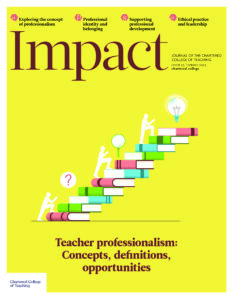RICHARD BUSTIN, DIRECTOR OF PEDAGOGY, INNOVATION AND STAFF DEVELOPMENT AND HEAD OF GEOGRAPHY, LANCING COLLEGE, UK
Introduction
It is very easy to leave the grand thinking about curriculum – what we choose to teach our children in schools and why – to others, such as senior leaders, textbook writers and exam authorities. Yet knowing what we want to teach the young people in front of us should be at the heart of our professionalism. If a traditional curriculum sees the prominence of knowledge being learned, then a more progressive curriculum puts the perceived needs of the child at the centre of thinking. For some of us, teaching is mainly about introducing students to some of the greatest thinking that humanity has been able to achieve; for others, it is about inculcating a set of values deemed worthy to society. For others still, it is about getting students to pass a set of exams. While all of these might play a role in a modern school, the contested notion of what we choose to
Join us or sign in now to view the rest of this page
You're viewing this site as a guest, which only allows you to view a limited amount of content.
To view this page and get access to all our resources, join the Chartered College of Teaching (it's free for trainee teachers and half price for ECTs) or log in if you're already a member.











